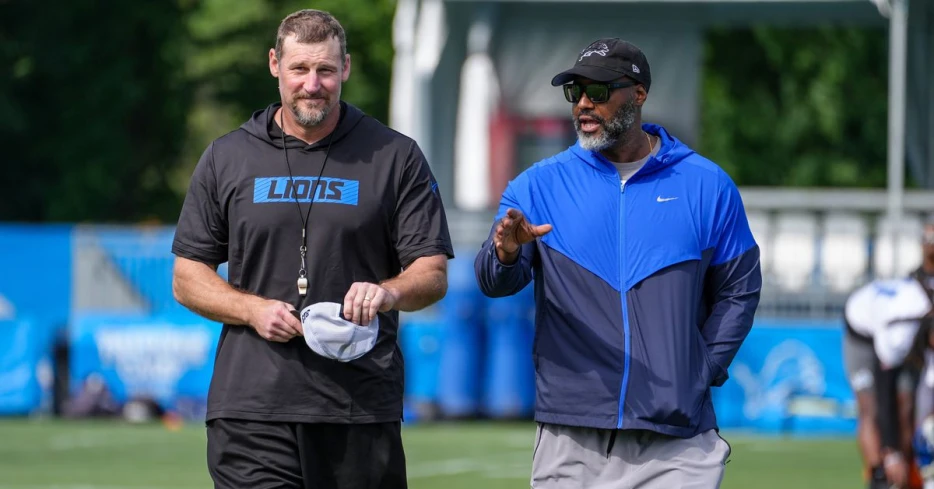
 Pride of Detroit
Pride of Detroit
The NFL is ever evolving. But are the Detroit Lions ahead of the curve when it comes to prioritizing specific types of players?
Generally speaking, there are a handful of agreed-upon “premium positions” in the NFL. Quarterback is still the most important position in football. Offensive tackles and defensive ends are drastically important for pass protection and pass rush, respectively. Wide receivers are largely considered an essential position, and cornerbacks are creeping into that conversation, too.
But the Detroit Lions have seemingly bucked those trends as of late. While they have high investments in a lot of those positions (see: first-round picks Jameson Williams, Aidan Hutchinson, Penei Sewell), they have also seemingly put a higher value on unconventional spots. They have put significant resources into a pair of running backs, paying big money to one safety, and drafted the other one highly. They drafted a linebacker in the first round and a tight end just outside the first round.
This begs the question: Why are the Lions so different? Does their scheme simply value different positions more than other teams, or are they ahead of a bigger league-wide trend toward valuing certain kinds of players and positions?
That was a big topic on this edition of the Midweek Mailbag podcast, and much of it was inspired by the conversation between ESPN’s Mina Kimes and Dan Orlovsky on the “Mina Kimes Show featuring Lenny.” The two NFL analysts talked about specific trends they’ve noticed—and you’ll be surprised about how many of those trends the Lions seemed to be spearheading as early as 2021. We’re talking 12 personnel, prioritizing cornerbacks who can tackle, leaning on two-gapping defensive tackles, and a safety/nickelback type who can play in the box. I highly recommend watching that episode.
Erik Schlitt and I expand upon that conversation and how it relates to the Detroit Lions, but we also ponder what will happen if/when the league starts trending back toward fast, speedy, spread offenses again. Will Dan Campbell and company adjust, or will they stay true to their identity of physical, ground-and-pound football?
It’s a fun conversation to think about, but we’ve got plenty more on this week’s episode, including:
You can listen to our entire discussion below, or on any of your favorite podcasting platforms.
If you want to watch the show with some bonus content, head over to our YouTube or Twitch pages for the full episode—where I learned I’ve been pronouncing haphazard wrong my entire life!